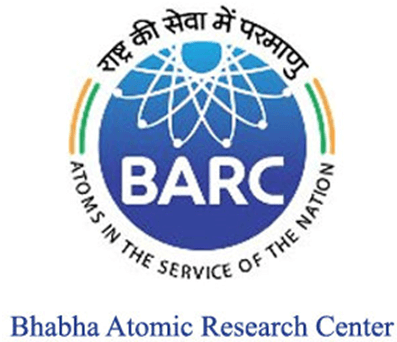What is the full form of BARCBARC: Bhaba Atomic Research Center
BARC stands for Bhaba Atomic Research Center. It is a premier nuclear research centre in India. It is located in Trombay, Mumbai. The Bhabha Atomic Research Center (BARC) is a head multidisciplinary innovative workplace under the Department of Atomic Energy (DAE) participated in research with the target of creating information and methods for atomic power creation, the progression of atomic science, utilization of radioisotopes in industry, wellbeing and agriculture, research in areas of science and innovation. Its main job is to find out the peaceful applications of nuclear energy, particularly in the area of power generation and utilization. Ajit Kumar Mohanty is the Director of the Bhabha Atomic Research Centre since 2019. He graduated from MPC College in Baripada with honours in 1979 and Ravenshaw College in Cuttack with his post-graduate degree in Physics in 1981. He joined the BARC Nuclear Physics Division in 1983 after completing the 26th batch of the BARC Training School. BARC also conducts research on spent fuel processing (used nuclear fuel processing), disposal of nuclear waste, agriculture, medicine, etc. It is also responsible for the smooth functioning of various nuclear reactors in the country. Brief History
Higher education programmes for DAE employees and students/researchers are conducted by Homi Bhabha National Institute (HBNI), Mumbai.
Training ProgrammesYoung, competent men and women who enjoy challenges in cutting-edge fields of nuclear science and technology and are eager to contribute to the developing Indian nuclear power programme might find fulfilling careers at the Bhabha Atomic Research Centre. At BARC and other DAE divisions, there are many opportunities to do cutting-edge research in the fields of physics, chemistry, geology, geophysics, engineering, and biosciences. 1. Orientation Course for Engineering Graduates and Science Post Graduates (OCES)The course consists of foundational, core, advanced, and elective courses, as well as mini-projects and other activities in a number of fields. The course work, which consists of in-class lectures, hands-on practise, and project work, is divided into three trimesters and is finished in a year starting on August 1st of each year. Exams and homework assignments serve as a constant kind of evaluation. The OCES programme is recognised by the Homi Bhabha National Institute (HBNI), an aided institution of the Department of Atomic Energy and a Deemed to be University under Section 3 of the UGC Act, for the award of a Post Graduate Diploma and as a course work for the award of an M.Tech./M.Phil. /Ph.D. degree. 2. DAE Graduate Fellowship Scheme (DGFS)DAE Graduate Fellowship Scheme (DGFS) for inducting engineers at M.Tech./M.Chem.Engg. level was initiated in collaboration with eight IITs, namely Bombay, Delhi, Guwahati, Kanpur, Kharagpur, Madras, Roorkee, BHU-Varanasi, as well as NIT-Rourkela and ICT-Mumbai, to attract young professionals who would like to start their careers only after obtaining an advanced degree. The programme also improves the research-education connections with the nation's top universities in fields of DAE interest. 3. Dr. K.S. Krishnan Research Associateship (KSKRA) ProgrammeThe distinguished Dr. K.S. Krishnan Research Associateship (KSKRA) Program provides Research Associates with the chance to work on R&D projects of national significance related to the DAE mission and gives opportunities for regular absorption in DAE units. The chosen individuals would be appointed as KSKRAs for an initial term of one year, with the option of an additional year depending on how well they perform in the initial year. Eligibility CriteriaFor Engineers: Ph.D. degree in Engineering / Master's degree in Engineering (M.Tech./M.E./M.S.) plus at least two years of experience in research and development For researchers/scientists: holding a Ph.D. in science
Next TopicFull Form
|
 For Videos Join Our Youtube Channel: Join Now
For Videos Join Our Youtube Channel: Join Now
Feedback
- Send your Feedback to [email protected]
Help Others, Please Share










